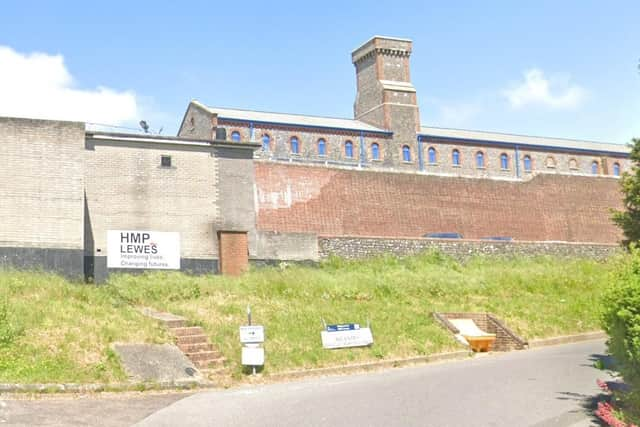Inquest opens four years after man accused of Sussex ‘machete attack’ dies in Lewes Prison
and live on Freeview channel 276
The inquest into the death of Finlay Finlayson, which is being heard with a jury, opened on Tuesday, March 12, and is scheduled to last until Tuesday, March 19, at Hastings Coroner's Court.
An East Sussex County Council listing confirmed Mr Finlayson was 54 years old when he died at HMP Lewes on January 25, 2019, and said the coroner's officer will be Sarah Cockram.
Advertisement
Hide AdAdvertisement
Hide AdOn Monday, December 24, 2018, Sussex Police said a man had suffered serious injuries after a ‘machete attack’ in Rustington. Police said officers were called to a report of a man attacking another with a machete in Lawrence Avenue at around 12pm. Police added that a man had been arrested on suspicion of attempted murder.


Sussex Police later said armed police had shot Finlay Finlayson with a rubber bullet during the incident, adding that Mr Finlayson had since been charged with attempted murder and two counts of possession of a knife.
In January 2019, a spokesman for the prison service announced: “Finlay Finlayson who was on remand at HMP Lewes died in prison on January 25, 2019”. They said: “As with all deaths in custody, there will be an independent investigation by the Prisons and Probation Ombudsman.”
Following Mr Finlayson’s death a pre-inquest review was held at Eastbourne Coroner’s Court in December 2019. As reported by the Worthing Herald, coroner Alan Craze said a post-mortem by Home Office pathologist Charlotte Randall ‘pointed to natural causes of death’.
Advertisement
Hide AdAdvertisement
Hide AdThe report, which was read out in court, said Mr Finlayson had died of a blood clot as a result of deep vein thrombosis. He also had cancer.
However, the family had concerns about the circumstances in which Mr Finlayson died, and Mr Craze said: “My instinct in this case is to say that if there are sufficient question marks, I should sit with a jury.”
Mr Craze also read out toxicology reports, which found no alcohol in Mr Finlayson’s system when he died. But the report said traces of morphine, diazepam, anti-psychotic drugs and other painkillers were present.